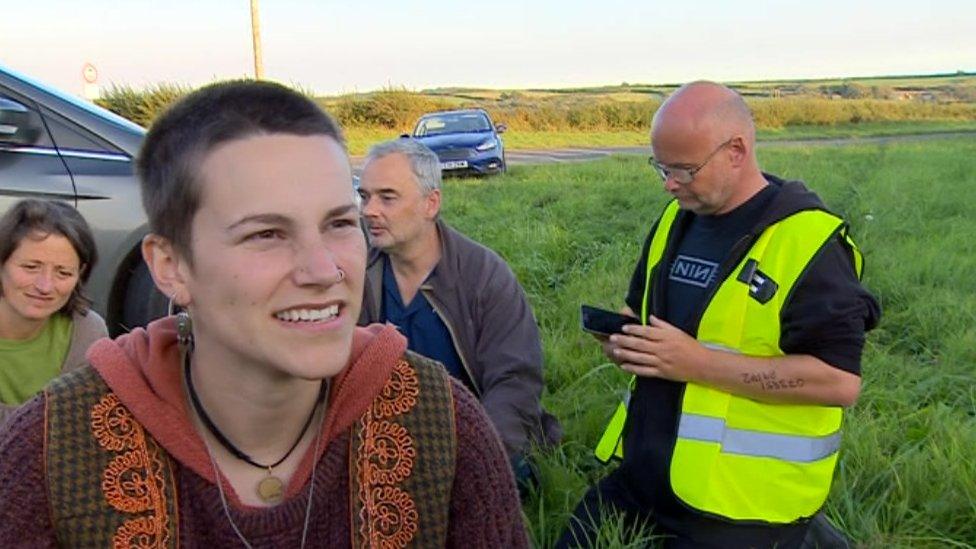Coronavirus: Winners and losers from oil price drop
- Published
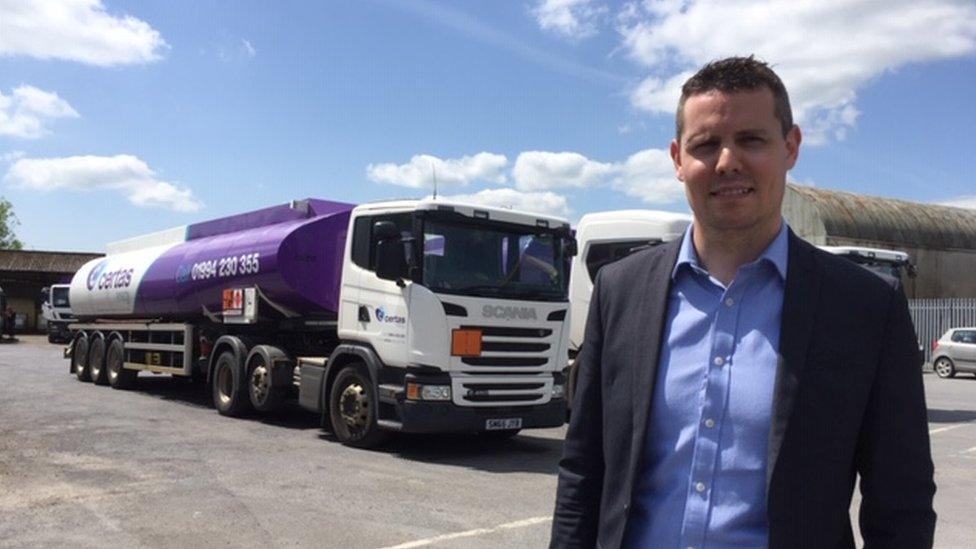
Heating oil suppliers said the cheap fuel was a "positive news in difficult times"
The dramatic fall in oil prices may be bad news for the industry - but is providing a brief windfall for households fuelled by heating oil.
The UK's oil and gas industry is warning 30,000 jobs could be lost as a result of the coronavirus pandemic with oil prices at their lowest in 20 years.
That has seen bills for houses heated by oil fall by as much as 75%.
However there are concerns that those customers storing additional cheap fuel could be targeted by thieves.
About 1.5 million homes in the UK use heating oil, including nearly 114,000 in Wales. The majority of those are across rural areas where houses are not connected to the mains gas supply.
They are being urged by industry experts to take advantage of prices falling from 54p per litre in January to below 20p in recent weeks.
Suppliers say some customers are even buying extra tanks to be able to store the cheap fuel.
Certas, the largest heating oil supplier in mid and west Wales, said demand had increased significantly.
"Fuel, and heating oil in particular, is one of the highest expenditures for anybody throughout the year," said commercial manager Andrew Cooper.
"Normally at this time of year a lot of customers top up their tanks, but at the moment they are filling up completely."
Mr Cooper, based in St Clears, Carmarthenshire, said some customers were anticipating a 75% saving on heating.
"It's refreshing in uncertain and difficult times that there is some positive news," he added.
"I would certainly fill up the tanks, but ensure the security measures are in place. With everybody buying fuel, there is the threat of theft with people knowing they are full."
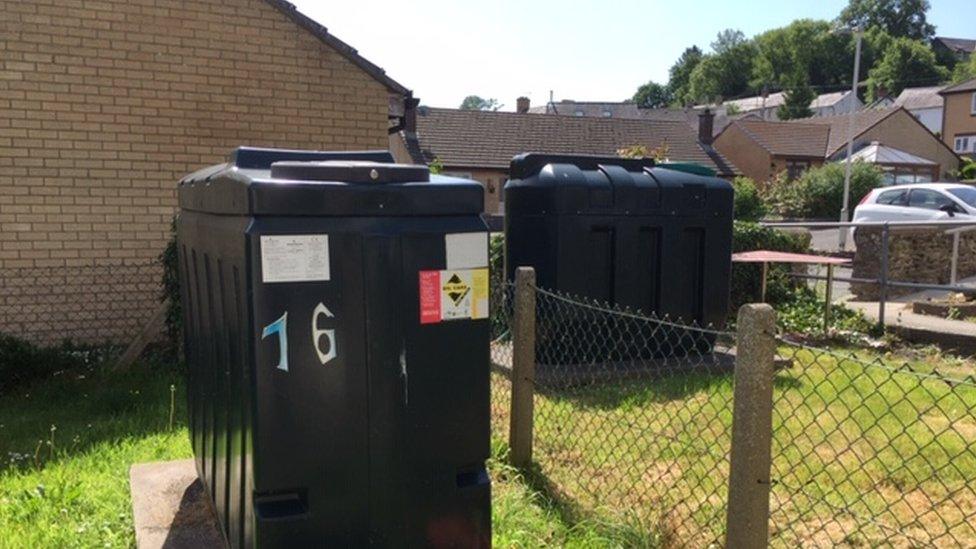
Could full tanks become a target for theft?
Quad Fuels, based in Wrexham, said the price fall was a "small positive in difficult times" and predicted it would be "several months" until the markets fully recover.
However managing director Anthony Saunders predicted a slump in business later in the year with so many customers stocking up now.
Should I stock-up?
Malcolm Farrow of the industry body the Oil Firing Technical Association (Oftec), said this was a "really good time for customers" with prices so low.
He predicted a "small rebound" in prices over the coming months though prices would remain relatively low for a while.
"If you can afford it, do it now, and you'll get an incredibly good deal, but if you can't it's probably not the end of the world and you will still probably find that prices are pretty low even if they have crept up a little."
What will happen when prices rise again?

Heating oil users are worried about when prices will significantly rise
Lloyd Thomas runs a fuel club in Newcastle Emlyn, Carmarthenshire, which buys oil every months for its 200 members collectively, to save money.
April's order was £1,200 cheaper than March - but Mr Thomas is worried prices could rise just as fast as the lockdown eases.
"I'm very concerned... where will the prices end up after this?" he asked.
"They're starting to creep back up now in the last month. For older people, it's hard - we're still in poverty - there's a lot of people who can't afford it as it is."
What about petrol for my car?
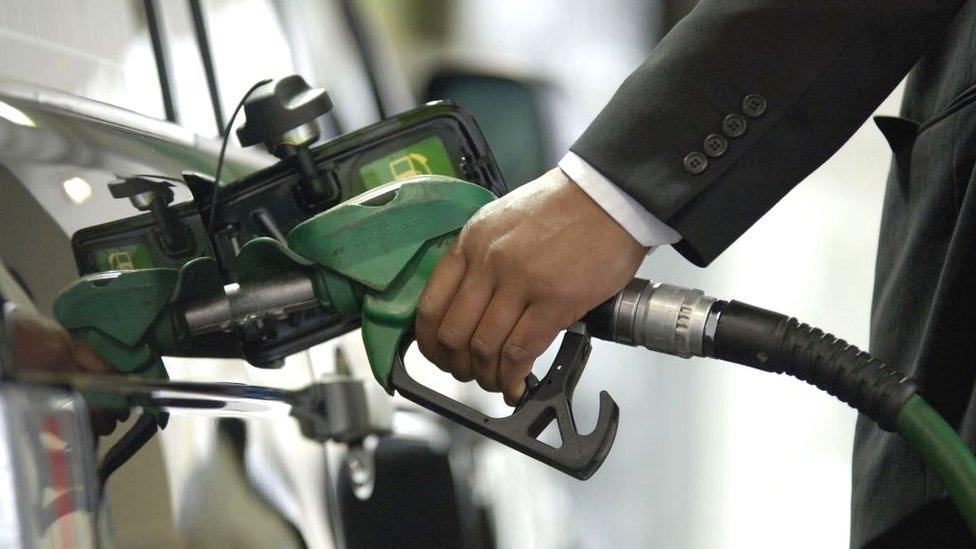
Petrol prices have also fallen during the crisis, but not as significantly because of taxation levels.
A litre of unleaded petrol has gone down from from 127p in January to 107p, according to UK government figures, external.
However the AA has claimed motorists are being ripped off by petrol companies not passing on cheaper oil prices at the pump.
What about liquid petroleum gas (LPG) users?
Prices are lower but users of LPG central heating - delivered to tanks or in bottles - have not benefitted as much from cheaper crude oil either.
"It's because they are locked into longer-term contracts," said Mr Farrow of Oftec.
"As they renew their contracts, they'll get a better deal if the LPG suppliers think prices are likely to stay low for a period.
"But with LPG, particularly if you've got a larger tank, it's usually owned by the supplier, so changing supplier is not quite so straightforward."
Will it affect jobs?
Valero insists it is business as usual at its Pembrokeshire oil refinery, which employs about 1,200 workers, despite the global crash in demand for fuel - particularly from motorists and the airline industry.
A spokesperson said: "While we have previously shared that some of our gasoline-producing units have been temporarily idled, the guidance we provided for second quarter 2020 is our system running at about 70% capacity. We are not considering employee layoffs or furloughs."
What's the long-term outlook?
Climate protesters block Pembroke Dock Valero oil refinery entrance
The oil industry is having to wait for the outcome of the pandemic on the economy like everyone else.
Carol Bell, an oil industry expert, said storage was the immediate issue facing refineries with tankers holding crude oil having to sit offshore from ports, waiting for demand to pick up.
However the industry was already facing questions amid the climate change debate.
"There was already a global conversation about the future of oil, as concern grows about climate change," said Dr Bell.
"Add to that, the fact that many businesses have discovered during the pandemic that many of their staff can work from home, and you can see a situation where the demand for fuel could continue to be lower than pre-pandemic levels and decline over the longer term."
- Published27 May 2020
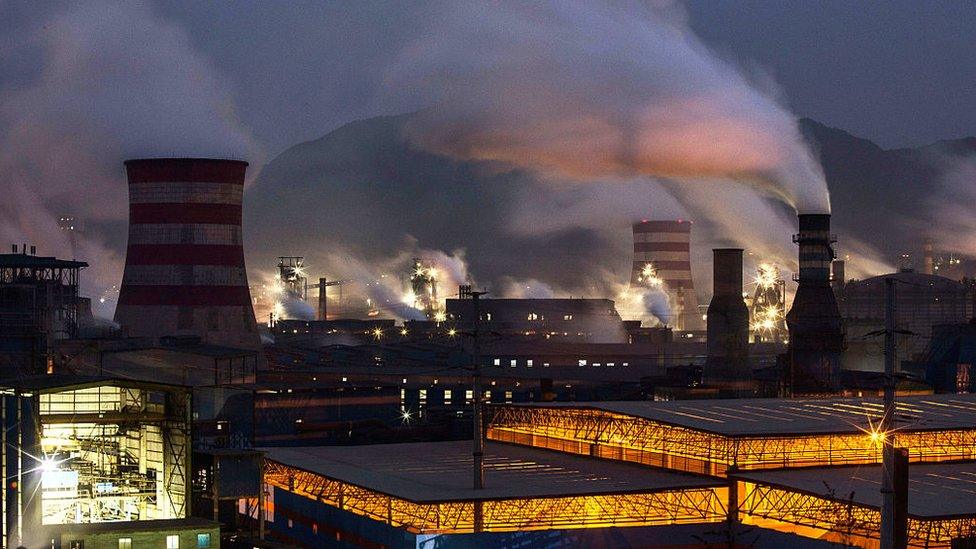
- Published28 April 2020
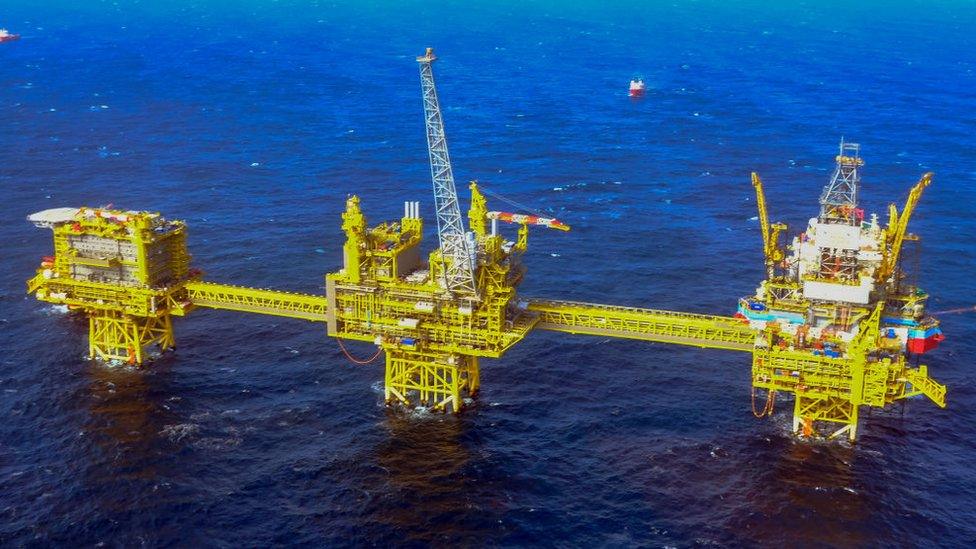
- Published12 April 2020
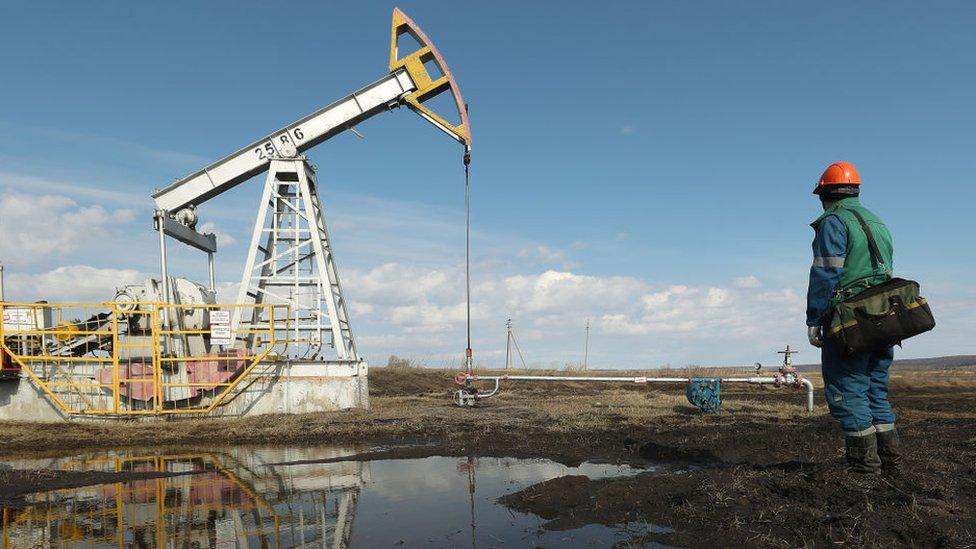
- Published30 March 2020
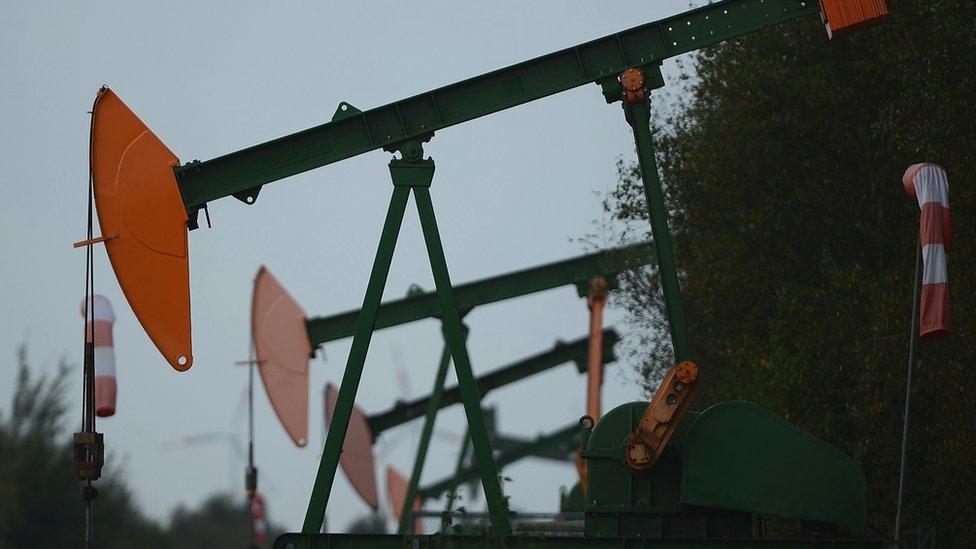
- Published19 September 2019
